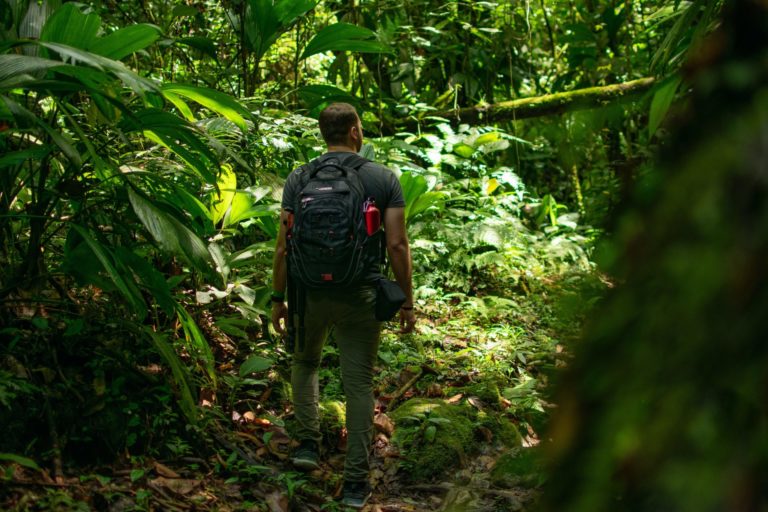Are you tired of the usual tourist hotspots and looking for a different kind of travel experience? If you want to explore the world, while also supporting local communities and the environment, you might be interested in ecotourism. In this article, we will explore the concept of ecotourism, why it’s significant in today’s world, and how it can help protect the planet while providing unforgettable experiences for travelers.
What is Ecotourism?
Ecotourism is a type of responsible and sustainable travel that prioritizes preserving nature, wildlife, and indigenous cultures. It aims to minimize the negative impact of tourism on the environment and promote the well-being of local communities.
In recent years, the increasing popularity of traveling has resulted in a significant effect on the cultural and natural heritage of many destinations worldwide. Ecotourism offers an alternative approach that focuses on sustainable tourism practices, promoting activities that do not jeopardize the integrity of natural ecosystems and the communities that depend on them.
Ecotourism can take many forms, such as wildlife observation, nature walks, wilderness camping, and other non-intrusive activities that do not harm the environment. It also involves activities that support conservation efforts such as tree planting, animal rescue, and beach cleanups.
Beyond environmental conservation, ecotourism is also about promoting cultural awareness and education. By learning about different cultures and local practices, travelers gain a deeper appreciation for the earth’s diversity, which fosters a sense of empathy and promotes international understanding.
To be considered ecotourism, a destination or activity should meet specific criteria. It should minimize its environmental impact, provide benefits to the local communities, and raise awareness of conservation and sustainability issues.
In summary, ecotourism is a responsible form of travel that aims to preserve and protect natural and cultural resources while enhancing the well-being of local communities. It offers a unique experience that educates, inspires, and challenges travelers to take positive actions toward a more sustainable world.
According to the United Nations, sustainable tourism can create jobs and business opportunities, and as such, is expected to contribute to reducing poverty, supporting local economies, and increasing wellbeing.
(UNWTO, 2021)
The Significance of Ecotourism
Why is ecotourism essential? In today’s world, it’s crucial for travelers and governments alike to promote sustainable and responsible tourism practices. Climate change, environmental degradation, and the exploitation of local communities have become significant global issues, which tourism can either exacerbate or alleviate. Ecotourism can help in the following ways:
Environmental Protection
Ecotourism helps protect delicate ecosystems and habitats, such as rainforests, wetlands, and coral reefs, by raising awareness of their importance and providing economic incentives for their preservation. Tourists, who choose to travel sustainably, and visit eco-friendly accommodations contribute to a more environmentally conscious travel industry by reducing carbon footprint and preserving natural resources.
Conservation of Local Cultures
Local cultures and traditions are often threatened by globalization and mass tourism. Ecotourism strives to conserve and celebrate indigenous knowledge and practices by encouraging travelers to interact with local communities and participate in cultural events. This enables visitors to learn more about the rich cultural heritage of the host country while contributing to the economic development of rural communities.
Economic Development
Ecotourism offers travelers an opportunity to experience the beauty of nature and local culture while providing economic benefits to the communities. The growth of ecotourism has led to the creation of job opportunities in rural areas and the development of small-scale enterprises. The income generated from ecotourism supports sustainable and responsible conservation practices, thus resulting in the preservation of natural habitats and cultural heritage.
Sustainable tourism has the potential to positively impact climate change by reducing carbon emissions, as eco-friendly transportation alternatives such as biking, walking, and public transportation reduce the number of vehicles on the road.
Intrepid Group, 2021
Examples of Successful Ecotourism Projects
Various ecotourism projects across the globe have made significant contributions to the societal, economic, and environmental well-being of the regions. Here are a few examples:
Mahul Village, India
Located in Mumbai, Mahul Village once suffered from rampant pollution and industrialization. However, after the implementation of an ecotourism project, the village has become a model of sustainable tourism, enabling the recovery of the ecosystem and providing employment opportunities for local residents.
Sierra Gorda, Mexico
Sierra Gorda, a biosphere reserve in Mexico, implemented an ecotourism project which encourages visitors to engage in outdoor activities like hiking, camping, and bird watching while learning about sustainable land management practices. This has not only helped conserve the biodiversity of the region but also empowered local communities through revenue generated from ecotourism.
Grootbos Nature Reserve, South Africa
Grootbos Nature Reserve, situated in South Africa, is a prime example of eco-friendly accommodation. The reserve has implemented sustainable tourism practices by promoting conservation and environmental protection initiatives, which have had a significant positive impact on the local economy and society.

How to Travel Responsibly
Here are some useful tips on how to travel responsibly:
- Choose eco-friendly accommodations that have implemented sustainable practices.
- Research tour companies and choose those that use sustainable and responsible tourism practices.
- Respect the local culture and traditions.
- Conserve resources by reducing waste and avoiding single-use plastics.
- Participate in eco-tourism initiatives that positively impact local communities and the environment.
Conclusion
Ecotourism is not only about enjoying beautiful landscapes or experiencing new cultures but also about preserving natural habitats, conserving local cultures, and contributing to the economic development of communities. Traveling sustainably and responsibly is essential in today’s world to protect our planet and improve the well-being of our societies. Choosing ecotourism can not only be a source of unforgettable experiences but also a way to create a positive impact. So why not take the initiative to travel responsibly and sustainably on your next trip?

